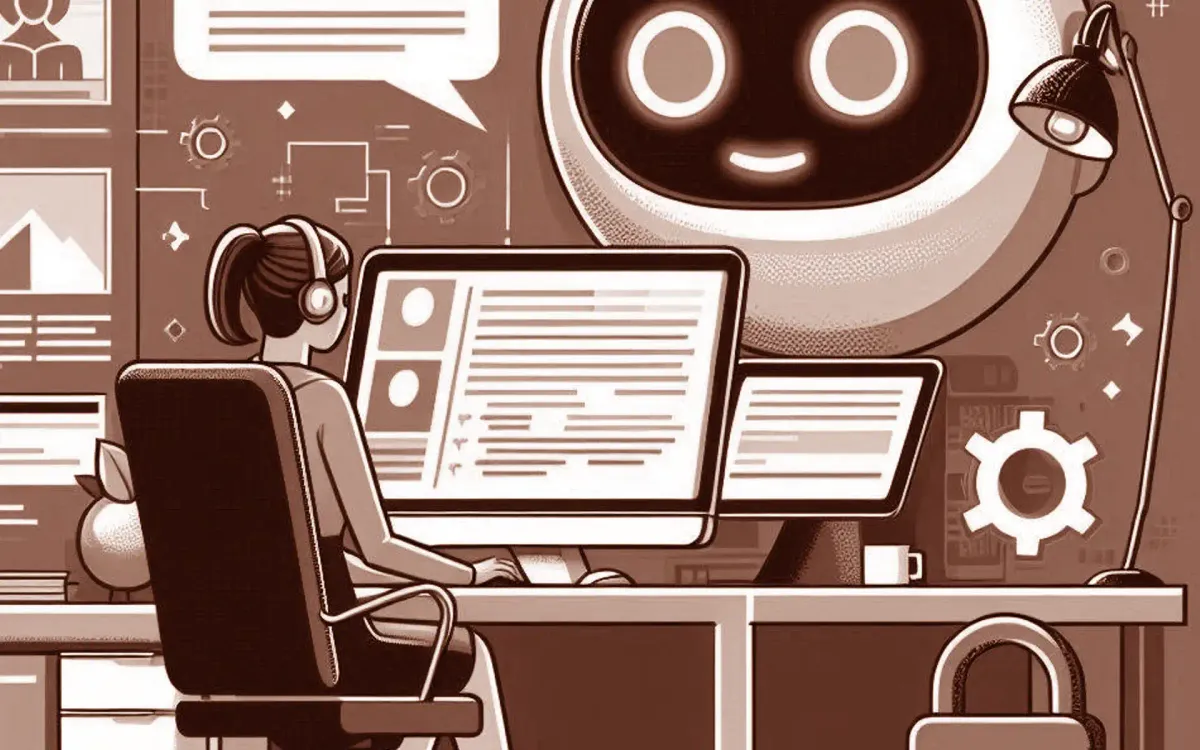
The Dutch Data Protection Authority (Dutch DPA) this week issued a warning about the increasing number of data breaches resulting from employees sharing sensitive personal information with artificial intelligence (AI) chatbots. This alert comes amid growing concerns over data privacy and security in the digital age.
The Dutch DPA has received multiple notifications of data breaches where employees inadvertently exposed personal data of patients, customers, and other individuals by inputting this information into AI-powered chatbots. These incidents have raised alarm bells about the potential misuse of personal data by the companies behind these AI tools.
According to the Dutch DPA, many workers are turning to digital assistants like ChatGPT and Copilot to streamline tasks such as answering customer inquiries or summarizing large documents. While these tools can boost productivity, they also pose significant risks to data privacy and security.
A data breach occurs when personal information is accessed without proper authorization or intent. The Dutch DPA notes that in many cases, employees are using AI chatbots on their own initiative, often in violation of company policies. When personal data is entered into these systems, it constitutes a data breach. Even in instances where organizations have officially sanctioned the use of AI chatbots, such practices may still run afoul of data protection laws.
One of the primary concerns highlighted by the Dutch DPA is that most companies behind AI chatbots store all input data on their servers. This means that sensitive information can end up in the hands of tech companies without the knowledge or consent of the individuals involved. The lack of transparency regarding how this data might be used or shared further compounds the issue.
In one particularly alarming case reported to the Dutch DPA, an employee at a general practitioner's office entered patients' medical data into an AI chatbot, violating internal protocols. Medical information is considered highly sensitive and is afforded special protection under data privacy laws. The unauthorized sharing of such data with a tech company represents a serious breach of patient privacy.
Another incident involved a telecommunications company where an employee input a file containing customer addresses into an AI chatbot. This unauthorized disclosure of customer information highlights the broad range of personal data at risk.
To mitigate these risks, the Dutch DPA emphasizes the importance of clear organizational policies regarding the use of AI chatbots. Companies must decide whether to allow chatbot use and, if permitted, establish strict guidelines on what types of data employees can and cannot enter. Additionally, organizations should consider negotiating data retention agreements with chatbot providers to limit the storage of inputted information.
In the event of a data breach resulting from unauthorized chatbot use, organizations are often legally required to notify both the Dutch DPA and affected individuals. This underscores the need for robust data handling protocols and employee training.
The rise of AI chatbots in professional settings reflects a broader trend of increasing AI integration in the workplace. While these tools offer significant benefits in terms of efficiency and productivity, they also present new challenges for data protection and privacy.
The Dutch DPA's warning comes in the context of evolving European data protection legislation. The European Data Protection Board (EDPB) issued guidelines on AI and data protection, emphasizing the need for transparency, accountability, and data minimization in AI systems.
As organizations grapple with these challenges, experts recommend a multi-faceted approach to mitigating AI-related data risks. This includes:
- Developing clear policies on AI chatbot use
- Providing comprehensive training to employees on data protection
- Implementing technical safeguards to prevent unauthorized data sharing
- Regularly auditing AI tool usage within the organization
- Engaging in transparent communication with customers about data handling practices
The Dutch DPA's alert serves as a wake-up call for organizations across Europe and beyond. As AI continues to transform the workplace, balancing innovation with data protection will be crucial for maintaining trust and compliance in an increasingly digital world.
Key facts
The Dutch DPA issued a warning on August 6, 2024, about data breaches caused by AI chatbot use.
Multiple notifications of data breaches involving personal data shared with AI chatbots have been received.
Employees often use AI chatbots like ChatGPT and Copilot without authorization.
Most AI chatbot companies store all input data, potentially exposing sensitive information.
A GP practice employee entered patient medical data into an AI chatbot, violating privacy protocols.
A telecom company reported a data breach involving customer addresses shared with an AI chatbot.
Organizations are advised to establish clear policies on AI chatbot use and data handling.
Companies must notify the Dutch DPA and affected individuals in the event of a data breach.

